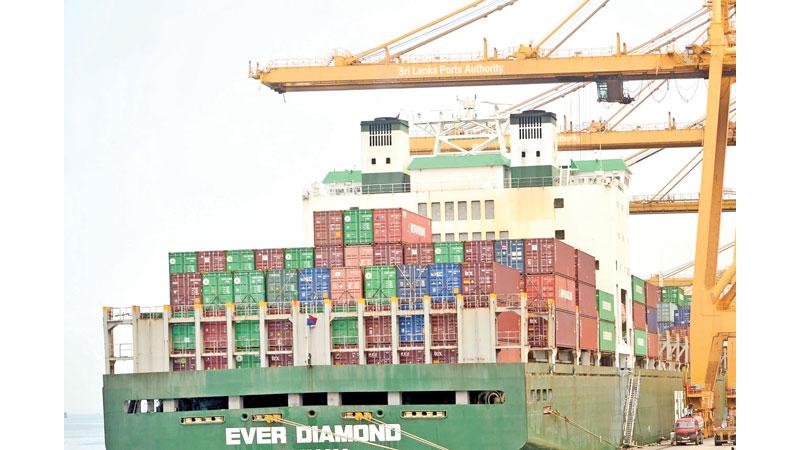
* Central Bank Bond scam eroded business confidence
The election of Gotabaya Rajapaksa as President of Sri Lanka evoked widespread euphoria, particularly among the business community. The economy has been in the doldrums for some time now, and business people look forward to an increase in their currently-depressed business activity.
This euphoria found its reflection in the stock market, which rose by nearly 1.8% on the first trading day since the presidential election. The Colombo Stock Exchange’s all share price index (ASPI) rose 106 points to 6130 points, the highest since August last year, and has hovered at this level since.
However, when the initial honeymoon period ends, what then? The new president must grapple with a multiplicity of economic issues, the chief of them being the huge balance of trade deficit. The deeper problem lies in the very structure of the economy. Sri Lanka simply does not produce enough to pay for the goods and servicesthe country buys from overseas.
The gap must be financed by remittances of workers in foreign climes and by borrowings. Remittances have stagnated in the past few years, while the debt has climbed. Borrowing did not matter very much with high growth – total debt as a percentage of gross domestic product (GDP) declined from over 102% in 2004 to 71% in 2014. However, in the past few years, the GDP growth rate has declined as borrowings increased. The country’s external debt has increased to US$ 55.5 bn, from US$ 42.1 bn at the end of 2014.
The new president’s long-term plans to escape from this situation will take time to implement and even longer to bear fruit. In the meantime, the going will be fairly rough. In the short term, he has promised measures to boost economic growth, the biggest priority at this time.The new government’s strategy for growth is fairly simple in concept – restore confidence. The euphoria that followed the election of the new president is proof of improved business confidence. The difficulty will be in sustaining that confidence.
The previous four years has seen a government shedding the goodwill it started with, by twists and turns of policy – the government changed economic track some nine times in that period – as well as by an amateurish approach to development. The cancellation of infrastructure projects at the very beginning of its term cost the ‘Yahapalana’ administration a great deal of goodwill, while the Central Bank Bond scams eroded business confidence further.
The new government comes in committed to a consistent long-term strategy, which it vows will not change. It expects to stimulate investment by first of all motivating local businesses to invest. This, in turn will be done by simplifying the tax system, while using technology to ensure the closing of loopholes and comprehensive coverage of taxpayers by the tax net. Precision of collection will enable collection to be increased while, at the same time, reducing personal taxation and indirect taxes.
The reduction and simplification of indirect taxes such as value-added tax (VAT), as well as technological improvements at the customsand excise, will bring down costs, increasing purchasing power. The promised relief package for the poor will also help stimulate the economy.
The government expects that the stimulation of the economy will act as a spur to foreign investment, particularly given Sri Lanka’s strategic position on the East-West trade route. It will also be choosy about the type of investment it invites. It will not, for example, grant across-the-board incentives to each and every businessperson of firm which says it wants to set up shop in Sri Lanka. On the other hand, it will welcome specific investments, especially those bringing in new and advanced technology, with generous encouragement.The problem is that the government will be faced, by the exigencies of parliamentary democracy, to deliver short-term results very quickly, in time for a general election early next year. The previous government fell into the trap, in an effort to increase its popularity, of giving too many inducements – many of which the country could not afford.
Taken together, the increase in government salaries, the reduction in import duties for cars and the drop in petrol prices, while winning the election, lost the government the economic battle. The consequent escalation of government expenditure, and surge in imports, put an unbearable strain on the government’s coffers and on the economy.
Fortunately, the incoming administration has at hand a reserve of personnel, experienced in dealing with economic and financial matters.
They will, we hope, be able to balance interim political needs with the longer-term needs of the country and the economy.
We may be confident that, unlike the previous government, the current president’s team will refrain from precipitate action which might jeopardise the economy.
They will be content with rousing the economy to a modest growth rate in the short-term, in expectation of accelerated economic expansion, enabling the country to join the ranks of the upper-income countries in the not too distant future.
